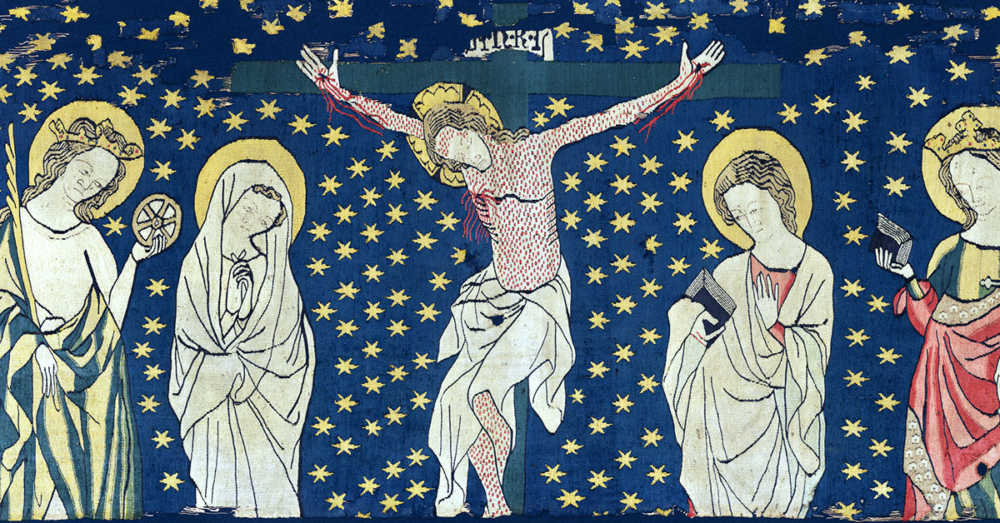We run our website the way we wished the whole internet worked: we provide high quality original content with no ads. We are funded solely by your direct support. Please consider supporting this project.

Why Did Jesus Cry Out that God Had Forsaken Him?
At the climax of Jesus’ suffering on the cross, Jesus cries out: “My God, my God, why have you forsaken me?” (Mt 27:46) It’s a jarring moment in the narrative. To forsake is to abandon. Did Jesus really believe that God had abandoned him? Was Jesus right about this? If he was right, what does that say about God? If he was wrong, what does that say about his connection with the father (about his standing within the trinity)?
Jesus had committed himself to doing the Father’s will, even though he anticipated it would involve a cup of great suffering (Mt 26:39). Paul tells us that, on the cross, “God made him who had no sin to be sin for us” (2 Cor 5:21). This means that, on Calvary, the all-holy God was totally saturated in our sin! Not only that, but Paul also teaches that, on the cross, “Christ redeemed us from the curse of the law by becoming a curse for us” (Gal 3:13). One who is cursed is estranged from God, which is why, when Jesus took on with our cursed state, he cried out: “My God, my God, why have you forsaken me?” (Mt 27:46). Jesus experienced the separation from God that we deserved, while experiencing abandonment on an infinitely more profound level than we could ever experience. And this means that, on Calvary, God, whose very nature is the perfect, loving union of Father, Son and Spirit, experienced the profound disruption of our God-forsakenness.
Yes, Jesus was abandoned, but the abandonment was a momentary horror that Jesus offered himself into. Furthermore, it was a rupture that overthrew Satan (1 John 3:8), and established our salvation (Hebrews 9:27-28). It was, to summarize, the greatest possible act of love.
Category: General
Tags: Cross, Crucifixion, The Cross
Verse: Matthew 27
Related Reading

How is the Bible “God-Breathed”?
The historic-orthodox church has always confessed that all canonical writings are “God-breathed” (1 Tim 3:16). But what exactly does this mean? How could God guarantee that the writings that his “breathing” produces are precisely what he intended without thereby undermining the autonomy of the agents he “breathes” through? In other words, did God breathe the…

The Cleansing of the Temple and Non-Violence
Jesus’ cleansing of the Temple is the most commonly cited example of those who allege that he did not absolutize loving enemies or refraining from violence. I submit that this episode implies nothing of the sort. First, it is important that we understand that this episode was not an expression of unpremeditated anger on Jesus’…

A Cruciform Dialectic
One of the most important aspects of God’s action on Calvary, I believe, is this: God revealed himself not just by acting toward humans, but by allowing himself to be acted on by humans as well as the fallen Powers. God certainly took the initiative in devising the plan of salvation that included the Son…

The Cross and The Trinity
Out of love for humankind, Scripture tells us, Jesus emptied himself of his divine prerogatives, set aside the glory he had with the Father from before the foundation of the world, became a human being and bore our sin as he died a God-forsaken death on Calvary (Phil 2:5-7). Though Jesus remained fully God, he…

Podcast: HOW Does the Death of Jesus Allow Us to Be Forgiven?
Greg discusses love bombs and explosions of light. http://traffic.libsyn.com/askgregboyd/Episode_0419.mp3

The Greatest Mystery of the Christian Faith
God has always been willing to stoop to accommodate the fallen state of his covenant people in order to remain in a transforming relationship with them and in order to continue to further his sovereign purposes through them. Out of love for humankind, Scripture tells us, Jesus emptied himself of his divine prerogatives, set aside…
